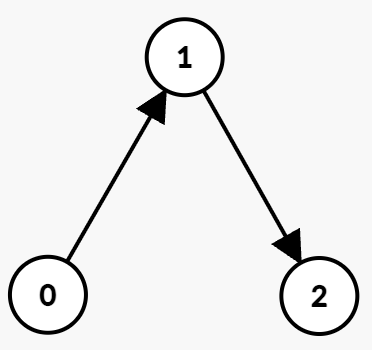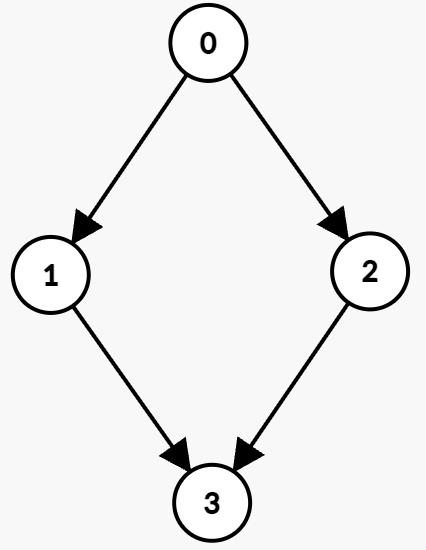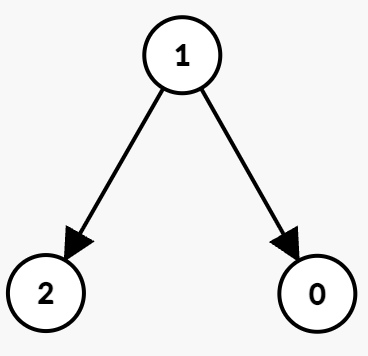Description
You are given an integer n and a directed graph with n nodes labeled from 0 to n - 1. This is represented by a 2D array edges, where edges[i] = [ui, vi, starti, endi] indicates an edge from node ui to vi that can only be used at any integer time t such that starti <= t <= endi.
You start at node 0 at time 0.
In one unit of time, you can either:
- Wait at your current node without moving, or
- Travel along an outgoing edge from your current node if the current time
tsatisfiesstarti <= t <= endi.
Return the minimum time required to reach node n - 1. If it is impossible, return -1.
Example 1:
Input: n = 3, edges = [[0,1,0,1],[1,2,2,5]]
Output: 3
Explanation:

The optimal path is:
- At time
t = 0, take the edge(0 → 1)which is available from 0 to 1. You arrive at node 1 at timet = 1, then wait untilt = 2. - At time
t =, take the edge2(1 → 2)which is available from 2 to 5. You arrive at node 2 at time 3.
Hence, the minimum time to reach node 2 is 3.
Example 2:
Input: n = 4, edges = [[0,1,0,3],[1,3,7,8],[0,2,1,5],[2,3,4,7]]
Output: 5
Explanation:

The optimal path is:
- Wait at node 0 until time
t = 1, then take the edge(0 → 2)which is available from 1 to 5. You arrive at node 2 att = 2. - Wait at node 2 until time
t = 4, then take the edge(2 → 3)which is available from 4 to 7. You arrive at node 3 att = 5.
Hence, the minimum time to reach node 3 is 5.
Example 3:
Input: n = 3, edges = [[1,0,1,3],[1,2,3,5]]
Output: -1
Explanation:

- Since there is no outgoing edge from node 0, it is impossible to reach node 2. Hence, the output is -1.
Constraints:
1 <= n <= 1050 <= edges.length <= 105edges[i] == [ui, vi, starti, endi]0 <= ui, vi <= n - 1ui != vi0 <= starti <= endi <= 109
Solution
Python3
class Solution:
def minTime(self, n: int, edges: List[List[int]]) -> int:
graph = defaultdict(list)
for u, v, start, end in edges:
graph[u].append((v, start, end))
visited = [inf] * n
visited[0] = 0
pq = [(0, 0)]
while pq:
time, node = heappop(pq)
if visited[node] != time: continue
if node == n - 1: return time
for adj, start, end in graph[node]:
if time > end: continue
reachTime = max(time, start) + 1
if reachTime < visited[adj]:
visited[adj] = reachTime
heappush(pq, (reachTime, adj))
return -1